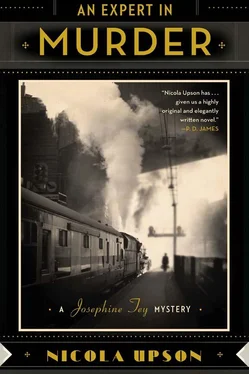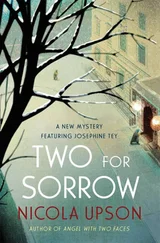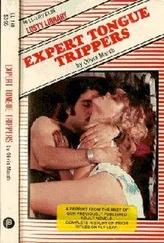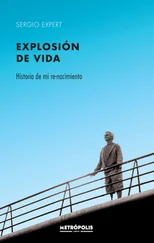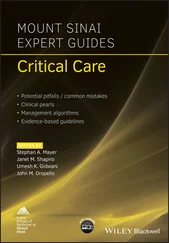Nicola Upson - An Expert in Murder
Здесь есть возможность читать онлайн «Nicola Upson - An Expert in Murder» весь текст электронной книги совершенно бесплатно (целиком полную версию без сокращений). В некоторых случаях можно слушать аудио, скачать через торрент в формате fb2 и присутствует краткое содержание. Жанр: Старинная литература, на английском языке. Описание произведения, (предисловие) а так же отзывы посетителей доступны на портале библиотеки ЛибКат.
- Название:An Expert in Murder
- Автор:
- Жанр:
- Год:неизвестен
- ISBN:нет данных
- Рейтинг книги:3 / 5. Голосов: 1
-
Избранное:Добавить в избранное
- Отзывы:
-
Ваша оценка:
- 60
- 1
- 2
- 3
- 4
- 5
An Expert in Murder: краткое содержание, описание и аннотация
Предлагаем к чтению аннотацию, описание, краткое содержание или предисловие (зависит от того, что написал сам автор книги «An Expert in Murder»). Если вы не нашли необходимую информацию о книге — напишите в комментариях, мы постараемся отыскать её.
An Expert in Murder — читать онлайн бесплатно полную книгу (весь текст) целиком
Ниже представлен текст книги, разбитый по страницам. Система сохранения места последней прочитанной страницы, позволяет с удобством читать онлайн бесплатно книгу «An Expert in Murder», без необходимости каждый раз заново искать на чём Вы остановились. Поставьте закладку, и сможете в любой момент перейти на страницу, на которой закончили чтение.
Интервал:
Закладка:
He might long for the sort of luck that his fictional counterpart, Inspector Alan Grant, had enjoyed on his debut outing, but he and Josephine both knew that the reality of death was different, that murder brought with it a contagious messiness, a stain of grief, horror and disruption which refused to be contained within the pages of a novel.
He realised with embarrassment that Fallowfield had continued 20
the conversation beyond his erudite knowledge of the works of Mrs Christie, but he had no idea what the man had been saying.
The Sergeant, who was used to Penrose’s tendency to allow his mind to wander, patiently repeated himself. ‘I was just saying about the hatpin, Sir. Turns out that millinery was her job. So perhaps it was just convenient to stab her with that.’
Penrose glanced at the hat which lay scuffed and crumpled on the floor close to the body, a casualty of the violence that had taken place. ‘Yes, perhaps.’ He looked at the girl intently, trying to see beyond features which had been dulled by death, to imagine what she had been like just a few hours ago and pinpoint what would have struck him about her had he passed her in the street.
With any murder investigation, he insisted on giving the dead a dignity and individuality which he could not always assume they had been afforded in life. The old adage was true: there were only a few genuine reasons for murder – love, greed and revenge topped the list – but each victim was different, and each had the right to be treated as if theirs were a unique death. He moved over to the body, close enough to notice a bloodstain on her collar. The mark indicated a cut to the neck but it was so small that it would have been easy to miss it. The victim’s head was tipped to one side and slightly forward, and he could see that a small patch of hair had been shaved off at the back. It had been roughly done – obviously the murderer had been in too much of a hurry to worry about breaking the skin – and a few strands of hair still lay on the girl’s left shoulder. Such an odd thing to do, he thought – so insignificant, and yet somehow so humiliating.
The air in the compartment was heavy and oppressive, and Penrose was glad to step outside into the corridor. ‘Where is the luggage, by the way?’ he asked Fallowfield. ‘Was it being sent on or was she planning to take it with her?’
‘I’ve had it locked in one of the guards’ rooms, Sir. There were no instructions for it to be sent anywhere.’
‘Then someone must have been coming to meet her. You’d better go and see who you can find in that crowd, Sergeant. Whoever it is will be worried sick by now – unless they’ve got something to 21
hide, of course. We’ll leave the scene to the boys, but tell them I want photographs of the lot – every small detail, particularly that cut on her neck. And we’ll need to start working through the passenger list, so the sooner you can get hold of that and a list of staff on duty, the better. I’ll go and see if Forrester can tell us anything we don’t already know – I could do with a cup of Maybrick’s tea myself, now you mention it – but if you find that anyone’s been waiting for her, I want to be told straight away. Have you gone through her bag yet?’
‘I’ve had a quick look, Sir. A few papers and a couple of weeklies, and this was in the side pocket with her train ticket,’ said Fallowfield, holding out a magazine. ‘Look at page fourteen.’
Penrose did as he was told. When he saw the dated inscription, his heart sank: ‘To dear Elspeth, with thanks for an unforgettable trip. I hope we’ll meet again! Much love, Josephine (Gordon).’ So she had known her as well, and could have been one of the last people to see her alive. Suddenly he needed something a little stronger than Maybrick’s tea.
When he saw the closest thing he had to a witness sitting in the waiting room clutching a full cup of tea that must have been cold for some time, Penrose realised he was unlikely to hear anything of great use. Fallowfield had been accurate in his assessment of Forrester’s fear, and it was hardly surprising. Most people were fortunate enough to reach a comfortable middle age before an awareness of the transience of life began to weigh heavily on them, but that was a luxury which had been denied to his own generation and he was all too experienced in recognising the moment when someone first came face to face with his own mortality.
For Penrose, that moment had come before he really had a chance to find anything out about himself, to know who he might have become if the world had turned out differently. He could still remember that week in early September – a month or so short of his return to Cambridge for the final year of his medical degree – when the war had begun, but before it had gathered any real momentum.
In Cornwall it had been intensely hot for the time of year, and he 22
was making the most of his last days at home. The village had decided to continue as planned with the Harvest Festival in defiance of the stresses and strains of war, so he had joined the rest of the family in a walk to the cliff-top church on the edge of his grand-father’s estate to listen while his uncle, the rector of the parish, thanked God for a magnificent harvest and the unbroken weather which had allowed it to be gathered in.
As soon as he saw the great Union Jack which had replaced the usual hanging at the front of the pulpit, Penrose realised that God’s representative – a sanctimonious bigot at the best of times, even if he was family – had changed his agenda. After preaching a terrifying sermon on the glories of battle, sanctifying maiming, slaughter and bloodshed with the blessing of a higher authority, the rector had urged all the young men to join the army, to sate the country’s appetite for soldiers who would defend the justice of the war. What he had failed to mention was that it was a cause for which thousands of them would be asked to give their lives, but his harvest sermon had done the trick: by the end of the year, every eligible man in the village had signed up to Kitchener’s new army, an exodus which was replicated all over the country, swelling the ranks by nearly a million in the space of just four months. Some expected garrison service at home while the real soldiers went off to do the real soldiering; most believed the papers when they said it would be a short war, over by Christmas at the outside. All had been wrong, and he was still sickened to the stomach when he thought of that call from the altar for young men to offer themselves for the glory of God and eight shillings and nine pence a week.
In his darker moments, when a connection to life was harder to find, he wondered if that was perhaps what kept him in this job –
not an abstract desire for justice or a belief that he could do anything to stem the evil which ran inherently through some men’s hearts, but a desperate need to contain the sense of guilt which he had carried since those days. Sometimes it worked, and the natural course of an investigation in which the humanity of an individual was paramount dispelled the sense of waste that came from seeing death on such a massive scale – but those moments were rare, and 23
the anger that had been a part of him since the war only seemed to grow deeper with time.
‘Let’s go back to before you found Miss Simmons in the compartment,’ he said to the boy gently.
‘Is that her name, then?’
‘Yes, she was called Elspeth. What were you doing in that carriage?’
‘I was only in there to make sure it was clean and tidy, ready for the next journey.’
‘But that wasn’t your job, was it? You’re a waiter, not a porter.’
Tommy took one look at the Inspector’s face and knew instantly that it would be pointless to string him along by pretending any great diligence in his work. ‘There was this girl, see? In the restaurant car – she kept giving me the eye, so I asked one of the other blokes if I could have a go at checking some carriages because I knew she’d be there somewhere. I thought I could catch her before she got off and see if she fancied a bite to eat later on. There wasn’t any harm in it,’ he finished defiantly.
Читать дальшеИнтервал:
Закладка:
Похожие книги на «An Expert in Murder»
Представляем Вашему вниманию похожие книги на «An Expert in Murder» списком для выбора. Мы отобрали схожую по названию и смыслу литературу в надежде предоставить читателям больше вариантов отыскать новые, интересные, ещё непрочитанные произведения.
Обсуждение, отзывы о книге «An Expert in Murder» и просто собственные мнения читателей. Оставьте ваши комментарии, напишите, что Вы думаете о произведении, его смысле или главных героях. Укажите что конкретно понравилось, а что нет, и почему Вы так считаете.
